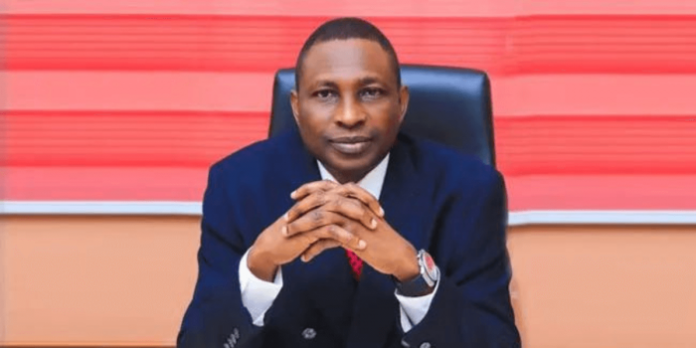The Economic and Financial Crimes Commission (EFCC) has dismissed two of its staff members over alleged corruption, signaling its unwavering commitment to internal accountability and integrity.
Chairman of the EFCC, Ola Olukoyede, disclosed this during the annual criminal law review conference organised by the Rule of Law Development Foundation in Abuja on Tuesday. He emphasised that the affected officials are under investigation, with case files being prepared for their prosecution.
“You can’t be fighting corruption with dirty hands,” Olukoyede remarked, highlighting the EFCC’s zero tolerance for misconduct within its ranks. “Integrity demands that anyone representing the EFCC must be above reproach,” he added.
Olukoyede also outlined a series of reforms aimed at enhancing the agency’s operations and ensuring adherence to the rule of law. Among the measures is a reviewed arrest and detention policy designed to minimise overnight detentions during investigations.
“I have investigated an entire ministry—ministers, directors, and all—without detaining anyone overnight, yet obtained all the needed information,” he revealed.
To streamline prosecutions, the chairman announced a cap on charges in court cases, limiting them to a maximum of 15 counts to ensure focus and diligent prosecution. “No case should fail due to lack of diligence,” Olukoyede stressed, adding that he personally reviews case files for high-profile matters.
In a public challenge, Olukoyede invited anyone with evidence of him taking bribes to come forward. He also welcomed constructive criticism of the EFCC’s activities, urging Nigerians to engage with the agency rather than undermine it.
“What do we gain by running down our institutions? If you notice anything wrong, come to us. We will engage you and explain our reforms,” he said.
Olukoyede further noted improvements in the agency’s interrogation facilities to ensure compliance with human rights standards.
The EFCC chairman also referenced a recent Supreme Court ruling on November 15, which dismissed a suit by 16 states challenging the constitutionality of the EFCC Act. Justice Uwani Abba-Aji, leading a seven-member panel, affirmed that the Act does not require ratification by state houses of assembly.
Olukoyede recounted his own two-year experience of being under investigation, stating that it deepened his commitment to fairness and integrity. “My major objective is to stimulate the economy through our work while ensuring integrity and morality guide our actions,” he said.
He concluded by reiterating the EFCC’s determination to rebuild public trust in its mission to fight corruption effectively and transparently.
Joseph Daudu, coordinator of the Rule of Law Development Foundation, commended the conference as a vital platform for assessing the efficiency of the criminal justice system from crime detection to adjudication.













